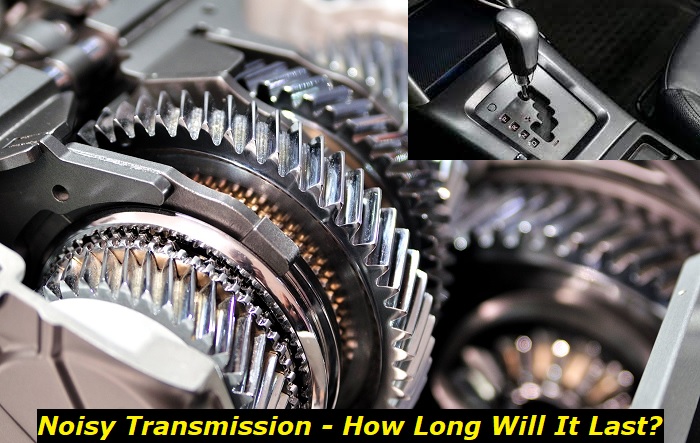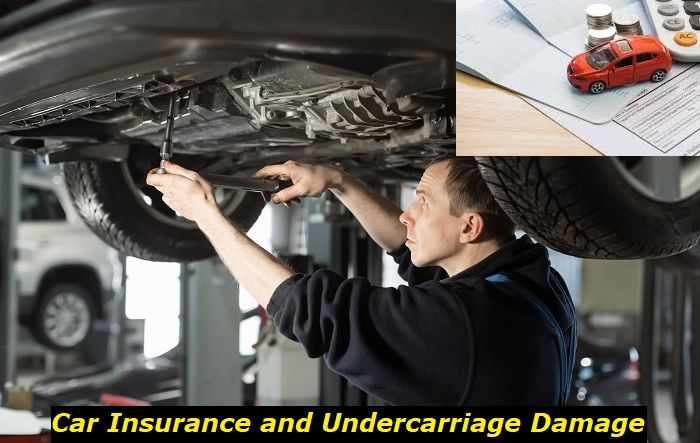A noisy gearbox can last just several minutes or several years depending on the problem that makes it noisy, but you should anyway go and have it inspected. The proper inspection will answer all your questions and will tell you if the repair is needed right now or if you can drive for a couple of weeks till you get the needed sum of money.
Noisy transmission highlights
- Level of importance:Medium
- Reasons:bearing problems, gears grinding, torque converter issues
- Needed expertise:High
- Needed tools:Professional tools set
- Time taken:5-10 hours
- Can you drive? Not recommended
- Possible issues: Serious damage to gearbox, gears failure.

Reasons for transmission noises in your vehicle
Your transmission should work almost silently. You shouldn't hear it when everything is OK. If you suddenly hear some whining or grinding noises, you may immediately think they come from the transmission. But there are other units in your vehicle that can make these noises.
Check the following units:
- engine - it can make the entire range of noises and is worth checking;
- alternator - the alternator has bearings inside and they can go whining;
- drive belt pulleys - tensioner, AC, and also hydraulic steering pump may make these noises;
- wheel bearings - these bearings will often make whining noises when they are dying.
So, first of all, you should make sure that the transmission is the culprit of the strange noise that's coming from the engine bay. If this is, for example, an alternator bearing, things are much better for you because the price of repair will be extremely lower.
If it's exactly the transmission that makes these unpleasant noises, you should understand the nature and the intensiveness of these noises. Here are the possible culprits:
- Bearings. First of all, whining noises may come from bearings. There are several bearings in your transmission and all of them may make noises when they are out of order.
- Gears. If the sounds resemble grinding, it may well be that the noise is coming from the gears. One or several teeth may be damaged and now they don't match with other gears.
- Torque converter. When the torque converter is out of order, it can make several kinds of noises that are quite hard to locate and diagnose.
- Low level of fluid. Automatic transmissions will make all kinds of noises when the transmission fluid is low. These transmissions rely on fluid in their work, so they may also start glitching heavily, in this case.
- Clutch. If you have a DCT or manual transmission, you can also hear all kinds of different noises and knocks if the clutch is worn out.
All these kinds of noises and the reasons for them depend on the type of transmission, its age, road conditions, etc. Also, some noises will only show up when you drive while some other kinds of noises will still be present when the vehicle doesn't move at all. So, it's quite hard to locate the problem just by analyzing the type of noise you are hearing. There are too many other problems that can cause these sounds.
Your first reaction to transmission noises
It's important to react correctly to any transmission noises you notice. First of all, you need to understand that driving your vehicle further is always risky as the noise transmission is unpredictable and it can break down in several minutes. Every step you take further should be made with an understanding of the risks.
Anyway, you may do the following:
- park your vehicle in a safe place;
- analyze if you hear the noises when the car is not moving;
- press the brake pedal and keep the engine on, try moving the gear selector in different positions and see if something changes;
- open the hood and try to locate the source of the noise - pay attention to the alternator and drive belt;
- if you hear bad grinding noises that become louder, turn off the engine and never turn it on again till you have your vehicle inspected;
- if you have the dipstick in your transmission, check the transmission fluid level in the transmission.
There is nothing much you can do on your own. The transmission inspection will require a lot of different skills and tools, so locating the problem on the roadside is almost impossible. The best thing you can do is to arrange a visit to the trusted repair shop or to the dealership. If you aren't sure that the transmission is good to drive, you better call a tow truck. Yes, you will have to pay a hundred or two, but this will save you from paying thousands for transmission repair, in some cases.
How you react to these transmission noises will affect your expenses in the end. So, you better avoid killing your transmission with your own hands.
How much is it to have the transmission inspected and repaired?
The transmission inspection may cost $50 to $300 depending on the potential problem and the chosen repair shop. During the inspection, mechanics may need to take off the transmission. In this case, the price will be higher.
When it comes to the price of transmission repair, it's almost impossible to predict it before the transmission is taken apart. Once mechanics see all the parts and completely understand what happened with the transmission, they can tell you the certain price.
Here are some examples:
- just adding or changing the fluid in your transmission may cost you $50 to $400 depending on the type of service, type of transmission, and the repair shop;
- transmission repair with the replacement of some parts will cost you a minimum of $1000 because the transmission has to be taken off and apart;
- clutch replacement will cost you $300-$500 for manual transmissions and up to $2,500 for DCT units;
- TCM repairs will cost you about $1000 for all kinds of transmissions and $500 for older transmissions.
Transmission repair takes some time and requires a lot of expertise. So even a minor problem may take quite a lot of money from your pocket. It doesn't mean that you should postpone your visit to the dealer or to the repair shop. If you keep driving with a grinding noise in your transmission, you may end up replacing the transmission.
Can I carefully drive with a noise transmission?
While in some cases, careful driving will not make things worse, you can never be completely sure that the transmission is safe to drive. If the problem is with damaged gears, you can make things even worse. One damaged gear may damage other gears quickly just by damaging the main gear. In such cases, your transmission will be easier to replace than repair.
But if it's a whining noise that most likely is telling you about the problem with one of the bearings, you can carefully drive to the repair shop without calling a tow truck. Just stop the vehicle if you feel that the noise is becoming louder or is accompanied by other types of noise.
When is it not wise to repair the transmission?
Sometimes, you can hear unpleasant news from mechanics - they may tell you that it's easier to replace your transmission than to repair it. While you may protest and say that replacing a transmission just can't be the wiser way to deal with the problem, you should investigate things better.
A used transmission or a remanufactured transmission for your vehicle may cost up to $1,500 while the new one will most likely cost you about $5,000. If you find a good remanufactured transmission with some warranty, you can buy it and pay about $300-$500 for having it installed. That's all, you are good to go.
If you decide to repair the fatally broken transmission, you may need to spend thousands and no one can tell you right now how much it will eventually cost you. So, sometimes, it's really better to agree on a replacement. Also, you can sell your broken transmission to companies that repair used transmissions and sell them as remanufactured ones.
Final thoughts
It's highly unpleasant when you hear bad noises from under the hood and understand that your transmission is the most obvious culprit for these noises. Grinding or whining sounds hint that there is a problem with the transmission and it has to be solved right now.
While in some cases, you can still drive the car for several days or weeks, you never know if this is the case in your situation. So, it's always better to deliver the car to the repair shop and to have it inspected right away.
About the authors
The CarAraC research team is composed of seasoned auto mechanics and automotive industry professionals, including individuals with advanced degrees and certifications in their field. Our team members boast prestigious credentials, reflecting their extensive knowledge and skills. These qualifications include: IMI: Institute of the Motor Industry, ASE-Certified Master Automobile Technicians; Coventry University, Graduate of MA in Automotive Journalism; Politecnico di Torino, Italy, MS Automotive Engineering; Ss. Cyril and Methodius University in Skopje, Mechanical University in Skopje; TOC Automotive College; DHA Suffa University, Department of Mechanical Engineering






Add comment